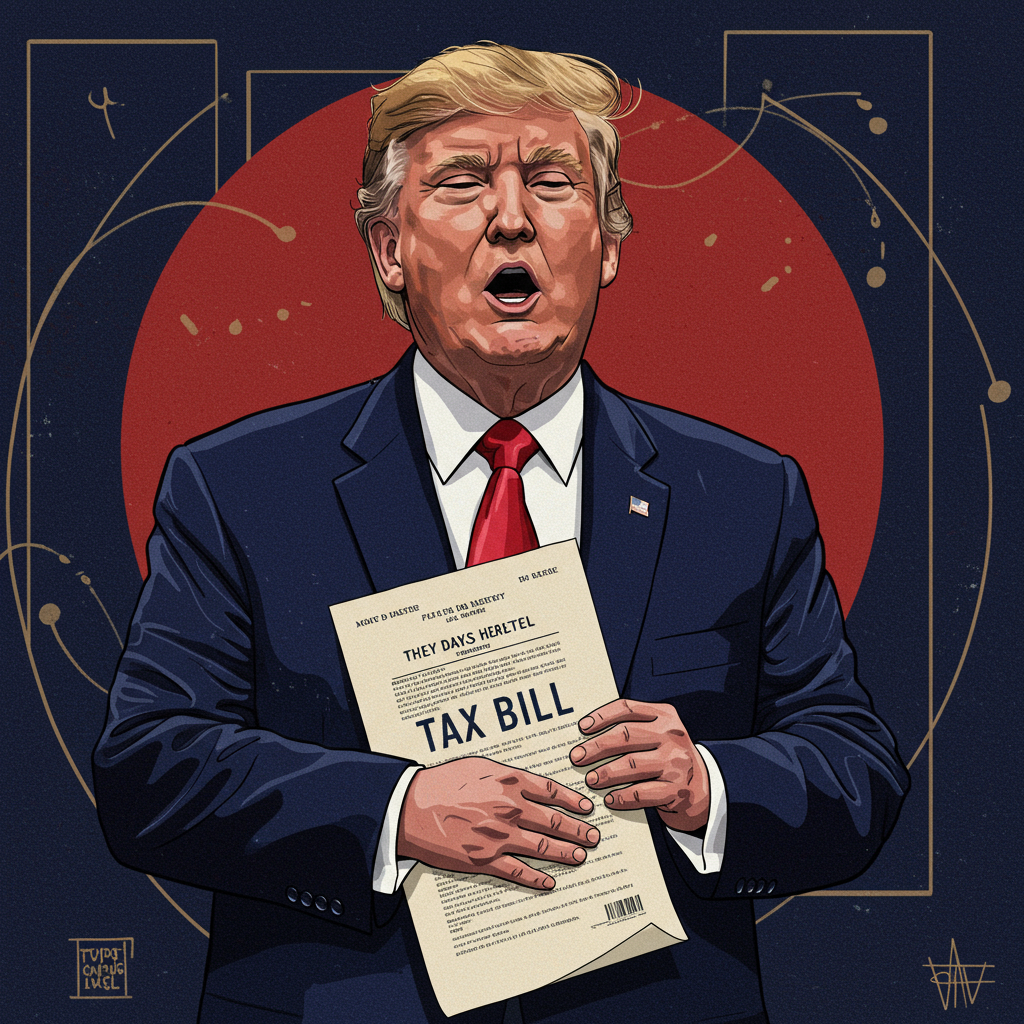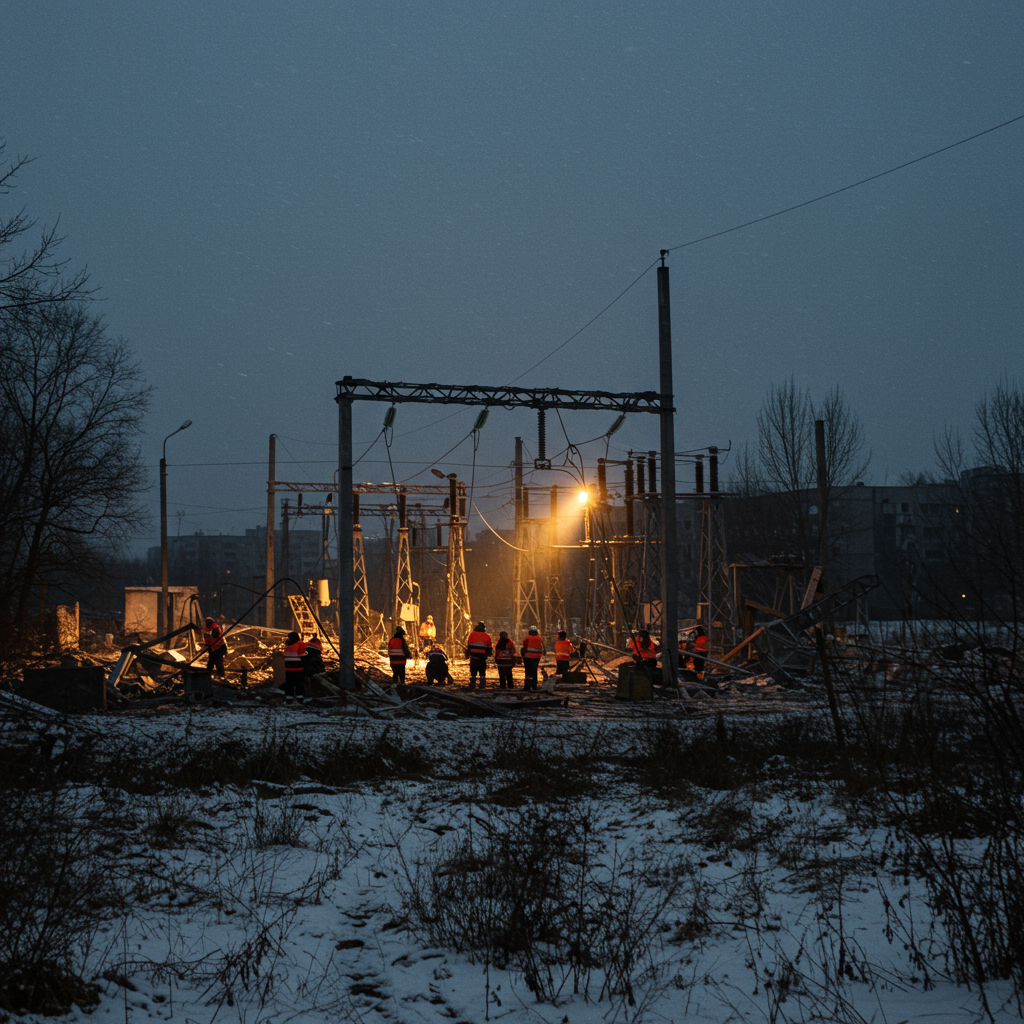President Donald Trump has ignited a firestorm of controversy, leveling grave accusations of “seditious behavior, punishable by death” against a group of Democratic lawmakers. This shocking declaration came in response to a video these lawmakers, many of whom are military veterans, released, urging service members to refuse illegal orders. The escalating rhetoric underscores deep political divisions and heightens concerns over the safety of elected officials amidst a volatile national climate. This article delves into the specifics of Trump’s claims, the Democrats’ defense, the White House’s stance, and the broader implications for American democracy and the military.
Trump’s Alarming Accusations and Calls for Arrests
On Thursday, in a flurry of Truth Social posts, former President Donald Trump launched an aggressive attack on several Democratic members of Congress. He branded their actions as “SEDITIOUS BEHAVIOR AT THE HIGHEST LEVEL,” demanding their immediate arrest and trial as “traitors to our Country.” Trump didn’t stop there, explicitly stating, “SEDITIOUS BEHAVIOR, punishable by DEATH!” He further amplified this extreme sentiment by reposting another user’s comment, which shockingly read, “Hang them George Washington would!!” His statements, widely condemned by Democrats, have injected a new level of vitriol into the political discourse.
This intense reaction from Trump was directly aimed at a video released by six Democratic lawmakers: Michigan Sen. Elissa Slotkin, Arizona Sen. Mark Kelly, and Reps. Chris Deluzio (PA), Maggie Goodlander (NH), Chrissy Houlahan (PA), and Jason Crow (CO). All these individuals boast distinguished backgrounds in the military or intelligence community, adding significant weight to their message.
The Democratic Lawmakers’ Video and Its Core Message
The contentious 90-second video, initially shared by Senator Slotkin, featured the six lawmakers addressing active military personnel and intelligence officers. They acknowledged the immense stress and pressure faced by service members, emphasizing that trust in the military was at risk. Their core message was a powerful reminder of the oath sworn to the Constitution. “Like us, you all swore an oath to protect and defend this Constitution,” they asserted, warning that threats to the Constitution were now originating “from right here at home.”
Crucially, the lawmakers clarified the legal basis for their advice: “Our laws are clear. You can refuse illegal orders. You must refuse illegal orders.” They underscored that “No one has to carry out orders that violate the law or our Constitution.” Rep. Deluzio later explained the motivation behind the video stemmed from privately reported concerns within the military about potential unlawful orders from the administration. Senator Slotkin staunchly defended the video, noting it merely reiterated established law, specifically referencing the Uniformed Code of Military Justice (UCMJ). She also has a documented history of concern regarding potential misuse of military power, having questioned past nominees on their willingness to follow illegal orders and criticizing the deployment of federal law enforcement in ways that could intimidate citizens.
White House Response: Denials and Counter-Accusations
In the aftermath of Trump’s incendiary posts, White House press secretary Karoline Leavitt addressed reporters, explicitly denying that President Trump intended to “execute members of Congress.” However, Leavitt swiftly shifted focus, turning the criticism back onto the Democratic lawmakers. She accused them of “conspiring together to orchestrate a video message… encouraging them to defy the president’s lawful orders.”
Leavitt framed the Democrats’ actions as a dangerous attempt to “disrupt the chain of command” within the military, suggesting such defiance could lead to chaos and potentially loss of life. She argued that all orders from the current commander-in-chief are inherently lawful and that questioning them was radical and dangerous. While denying the death penalty claim, she hinted that the lawmakers’ actions “perhaps [are] punishable by law,” deferring legal judgment to the Department of Justice and the Department of War. This response highlights a stark difference in interpretation of military law and constitutional duty between the administration and the Democratic lawmakers.
Widespread Condemnation and Concerns for Safety
The Democratic lawmakers targeted by Trump’s accusations issued a powerful joint statement. They unequivocally condemned his “calls for our murder and political violence,” highlighting the disturbing irony that Trump considered it “punishable by death for us to restate the law.” They reaffirmed their unwavering commitment to their oath to the Constitution, stating, “No threat, intimidation, or call for violence will deter us from that sacred obligation.” Rep. Deluzio confirmed he had received threats since Trump’s posts and was taking precautions with Capitol Police.
Reactions from Democratic leadership were swift and resolute. House Minority Leader Hakeem Jeffries and other House Democratic leaders condemned Trump’s “disgusting and dangerous death threats,” immediately contacting Capitol Police regarding member safety. Senate Minority Leader Chuck Schumer called Trump’s remarks an “outright threat” and “deadly serious,” warning that such rhetoric could incite violence among his supporters. Schumer specifically requested special protection for Senators Slotkin and Kelly. Pennsylvania Governor Josh Shapiro also defended his state’s representatives, denouncing Trump’s actions as actively encouraging “political violence.”
Republican Reactions and Broader Political Context
Responses from Republicans to Trump’s rhetoric were notably mixed. House Speaker Mike Johnson (R-La.) initially demurred on Trump’s specific calls for punishment, stating that the DOJ and Pentagon were “looking into the legality of all that.” However, Johnson then sharply criticized the Democratic video itself, labeling it “wildly inappropriate,” “dangerous,” and “unprecedented in American history” for allegedly telling troops to disobey orders. Other Republicans, like Senator Lindsey Graham, found Trump’s remarks “over the top” but also criticized the Democratic video as “despicable.” Senator Rand Paul voiced concerns about “jailing your political opponents, or hanging them,” while Senate Majority Leader John Thune disagreed with Trump’s comments but also called the Democrats’ video “ill-advised and provocative.” Deputy Attorney General Todd Blanche indicated the Justice Department would examine the Democratic lawmakers’ video, describing it as a “disgusting and inappropriate display of supposed leadership.”
This exchange occurs within a deeply polarized national landscape already grappling with escalating political violence. Recent high-profile incidents, including the assassination of a conservative commentator, an arson attack on a governor’s home, and attempts on Trump’s life, underscore the volatile environment. NBC News polling indicates a growing public belief that extreme political rhetoric is a significant contributor to such attacks. The episode also highlights a pattern where Trump’s social media criticism, even against his own allies, has led to increased threats and “swatting” incidents against them, further demonstrating the real-world consequences of his powerful online presence.
Frequently Asked Questions
What specific actions did Democratic lawmakers take to draw President Trump’s “sedition” accusations?
Six Democratic lawmakers, all military veterans or former intelligence officials, released a video urging U.S. military and intelligence personnel to refuse “illegal orders.” They emphasized their oath to the Constitution, asserting that “our laws are clear” regarding the obligation to refuse orders that violate the law or the Constitution. They did not specify any particular illegal orders but framed their advice as a defense against threats to the Constitution originating “from right here at home.”
What legal principles permit military personnel to refuse orders they deem unlawful?
The principle that military personnel are not obligated to follow unlawful orders is a foundational element of the Uniformed Code of Military Justice (UCMJ) and military law worldwide. Service members swear an oath to the Constitution, not to any individual, and are legally bound to disobey orders that are clearly illegal, immoral, or unconstitutional. The responsibility rests with the individual to discern the legality of an order, though this can be a complex and challenging determination in practice.
How does this exchange contribute to broader concerns about political violence and rhetoric in the U.S.?
This incident significantly elevates concerns about political violence by demonstrating the willingness of a former president to use extreme rhetoric, including calls for death, against political opponents. In a country where political polarization is high and incidents of violence are increasing, such statements are seen by many as highly irresponsible and dangerous. Democratic leaders and commentators warn that such language can incite violence among fervent supporters, further normalizing hostility and undermining democratic norms.
Conclusion
President Trump’s accusation of “seditious behavior, punishable by death” against Democratic lawmakers marks a grave moment in American political discourse. While the White House denies any literal call for execution, the highly charged language and the context of a nation grappling with political violence send a chilling message. The debate over the military’s duty to refuse illegal orders versus the challenge to a commander-in-chief’s authority reflects fundamental questions about constitutional fidelity and the rule of law. As political tensions continue to mount, this episode serves as a stark reminder of the profound impact of rhetoric and the ongoing challenges to maintaining civil and safe political engagement in the United States.



